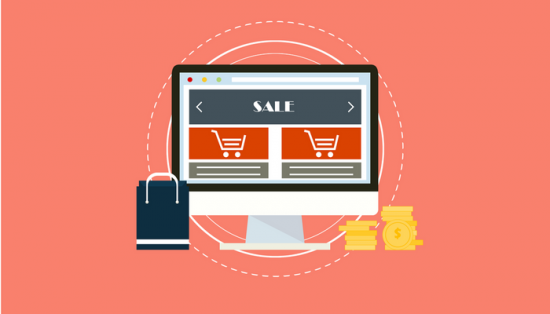
As an online retailer, certain things are critical to success in today’s market. Customer trust is huge, and you can’t afford to compromise the security of the personal data and financial information they entrust you with. On the other hand, if your checkout page, or any other page on your website fails to load quickly, they will leave and bounce to another site.
So, what’s the solution? Large retailers like Amazon seem to have the system down to a science, but as a small business, can you afford to implement the same options? How do you balance security, speed, stability and all of the other issues your site and your shoppers face?
Security
Once you have selected your domain name, even before you setup your hosting, you need to look at security options when aligning with vendors. It is not only important to plan for what you need right now, but also what you might need in the future. If growth is your goal, planning for it is essential when considering security solutions. Here are the must-haves for e-commerce security:
- Firewall Protection: You should have redundant firewalls to protect your site, and you also need a Web Application Firewall, or WAF. This protects your site against SQL attacks, cross-site scripting (XSS), and others.
- DoS/DDoS Mitigation: You’ve heard by now of denial of service attacks, in which fake visitors take up all of your resources, lock up your server, and can even take your website offline. These security measures put a barrier between your website and these sudden floods of visitors.
- Secure Sockets Layer (SSL) Certificates: If you haven’t heard of this yet, you need to. Many hosts offer these as a part of their service but not all. For your website to be secure, SSL certificates are a necessity.
- Vulnerability Monitoring and Antivirus: These are separate yet similar programs. One scans application code for known issues and viruses; the other scans files and services on your server.
There are a couple of optional security measures that are nearly as essential as the above. They include encrypted back-ups, service monitoring, and response. Most hosts include these services, but be sure to check and make sure before signing up. Also, you may want to enable 2FA for all administrators, which means they have to follow a second verification process after entering their password before they get to the hosting area. This is unique because it challenges you with something you know and something you have, preventing one of the most common causes of data theft: password leaks. Often encryption is nearly impossible to break, but it is the human factor that makes the difference.
Speed
 Your website must load quickly, and be responsive and mobile compliant. It should be AMP (Accelerated Mobile Pages) compliant if at all possible. Users do more searches than ever before with mobile devices and tablets, and often make purchases during those searches. This means a few things for your website that are critical. First, the checkout process should be easy. There should be a clear path to the shopping cart. Depending on your type of business, consider accepting various forms of payment. This can include Apple Pay, Samsung Pay, Google Pay, and other similar options in addition to debit/credit cards and PayPal. There are third party checkout systems offered by Square, PayPal, and more that will allow your customer to check out both quickly and securely if your host does not have one that works better. These generally work pretty fast, and users trust them as they are familiar. It’s not just about your shopping cart and checkout process though. The rest of your website should load quickly as well. This means home pages, landing pages, product pages, your blog content, and more. Studies show that if a website takes more than four seconds to load, the user will leave and go elsewhere.
Your website must load quickly, and be responsive and mobile compliant. It should be AMP (Accelerated Mobile Pages) compliant if at all possible. Users do more searches than ever before with mobile devices and tablets, and often make purchases during those searches. This means a few things for your website that are critical. First, the checkout process should be easy. There should be a clear path to the shopping cart. Depending on your type of business, consider accepting various forms of payment. This can include Apple Pay, Samsung Pay, Google Pay, and other similar options in addition to debit/credit cards and PayPal. There are third party checkout systems offered by Square, PayPal, and more that will allow your customer to check out both quickly and securely if your host does not have one that works better. These generally work pretty fast, and users trust them as they are familiar. It’s not just about your shopping cart and checkout process though. The rest of your website should load quickly as well. This means home pages, landing pages, product pages, your blog content, and more. Studies show that if a website takes more than four seconds to load, the user will leave and go elsewhere.
Stability
 When a visitor comes to your site, they should be able to view it without any issues, and it should be up all the time. This is possible if you have High Availability Hosting, which means your site will be up even during patching, hardware upgrades, and other regular maintenance. Ideally, you should have a content delivery network (CDN). This type of network makes web content available to users around the world, no matter where they are located. It also makes sure video, photos, and other content loads quickly anywhere in the world as well.It also provides additional throughput when you have a sudden spike in visitors, so even if you have a post go viral, it won’t crash your website. All companies will need these features eventually if they continue to grow. Your company can save itself time, headaches, and other issues by setting these up before your e-commerce business takes off, and things start to grow at an exponential rate. By that time, you will be too busy to deal with web strategies, and making improvements will be costly. Your site needs security, speed, and stability to grow with you. Being prepared is much smarter than trying to play catch up.
When a visitor comes to your site, they should be able to view it without any issues, and it should be up all the time. This is possible if you have High Availability Hosting, which means your site will be up even during patching, hardware upgrades, and other regular maintenance. Ideally, you should have a content delivery network (CDN). This type of network makes web content available to users around the world, no matter where they are located. It also makes sure video, photos, and other content loads quickly anywhere in the world as well.It also provides additional throughput when you have a sudden spike in visitors, so even if you have a post go viral, it won’t crash your website. All companies will need these features eventually if they continue to grow. Your company can save itself time, headaches, and other issues by setting these up before your e-commerce business takes off, and things start to grow at an exponential rate. By that time, you will be too busy to deal with web strategies, and making improvements will be costly. Your site needs security, speed, and stability to grow with you. Being prepared is much smarter than trying to play catch up.





